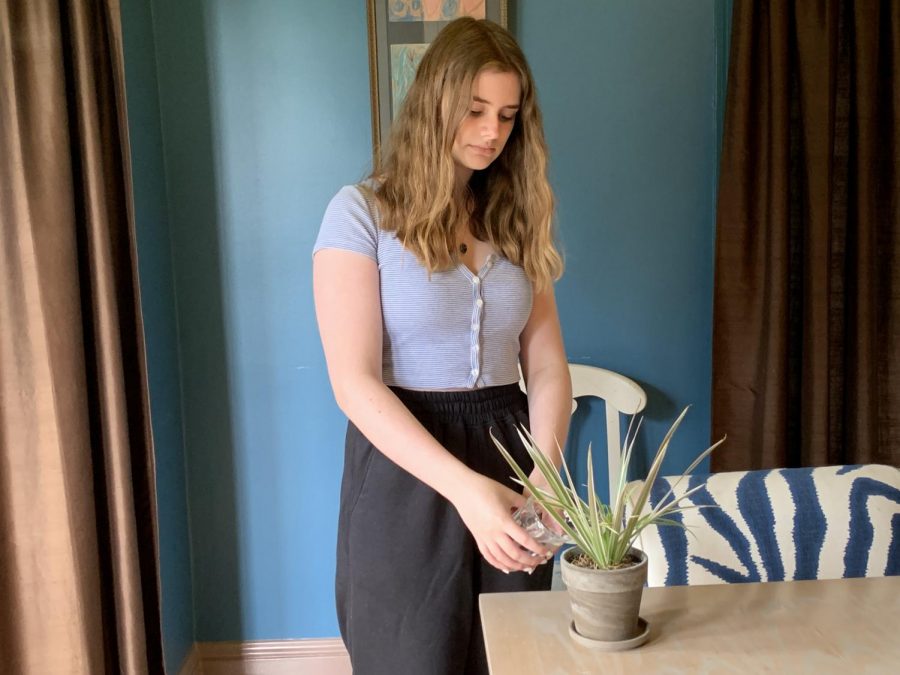Indoor plant growing
Growing plants indoors benefits the brain and body
Sophomore Claire Abel waters her plant in her living room. To keep plants alive, water is added to help with photosynthesis and the movement of nutrients in the soil.
October 4, 2021
On a sunny day, light streaming through a window landing on a thriving plant can soften the space of a home. With the different varieties of flowering plants, ivy, and succulents, growing greenery can be accomplished even in one’s own house.
“My family and I have plants all over our house to be used for decorations and to beautify the space,” sophomore Claire Abel said. “The plants really help brighten up and add freshness to different areas.”
Taking care of plants can have additional benefits, like lowering stress levels, and stabilizing blood pressure and heart rate, according to Min-sun Lee, a scientist from the Department of Horticulture Sciences at Chungnam National University.
“Our results suggest that active interaction with indoor plants can reduce physiological and psychological stress compared with mental work,” Lee said. “This is accomplished through suppression of sympathetic nervous system activity and diastolic blood pressure and promotion of comfortable, soothed, and natural feelings.”
Plants also reduce indoor air pollutants for cleaner and healthier air quality, according to a NASA study.
“The plants in my room make it seem like the air quality in my home is better,” Abel said. “When I have plants in my room it feels fresher and cleaner than when they are not there.”
Owning plants can help students learn about the responsibilities of taking care of and keeping plants alive. It can also teach students how to adapt their schedules to what the plant may need, according to senior Olivia Webb-Purkis.
“When I first began to look after plants, I was following a very precise schedule, which led me to be too overbearing with them,” Webb-Purkis said. “ I’ve had them for longer now, and I’ve learned how to be more dynamic in my plant ownership and really look at the plant and give it what it needs in the moment, rather than following such a strict schedule.”
Forgetting to fulfill the necessary tasks like watering the plants, giving them sunlight, or any other tasks can potentially kill almost any plant.
“All the plants I have had have died after a couple of months because I forget to take care of them,” sophomore Catherine Fox said. “It’s very hard to remember to water them and a lot of the time they stop thriving when I stop attending to them.
Plants need spring water or rainwater to stay alive, but if water with salt or sugar is added to the soil the plant can die, according to Webb-Purkis.
“These plants are relying on you to survive,” Webb-Purkis said. “You can physically see the effects of forgetting to water a plant, so it is crucial to be responsible with your watering schedule.”
Houseplants can be used as a way to include nature indoors while helping the environment by producing oxygen into the air.
“I take care of plants not only to add oxygen, grow food, and for the appearance value but to help the environment in any way I can,” Abel said.










